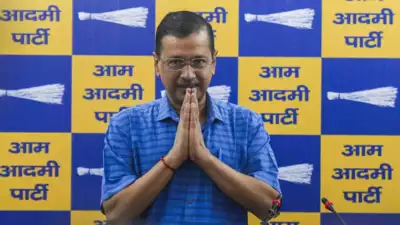Lagatar24 Desk
New Delhi: The Aam Aadmi Party (AAP) announced its fourth and final list of 38 candidates for the upcoming Delhi Assembly elections, becoming the first major party to declare all 70 contenders. Arvind Kejriwal, AAP’s chief, will contest from New Delhi constituency for the fourth time, while Chief Minister Atishi will seek re-election from Kalkaji.
The latest list aligns with AAP’s strategy of addressing anti-incumbency by replacing 20 sitting MLAs and relocating senior leaders. For instance, former deputy CM Manish Sisodia has been shifted from his traditional Patparganj seat to Jangpura in South Delhi.
Changes in Leadership and Candidacy
In a meeting chaired by Kejriwal, the Political Affairs Committee finalized the list. Announcing the list, Kejriwal criticized the BJP, stating, “They have no CM face, no team, no planning, and no vision for Delhi. They only chant one slogan: ‘Remove Kejriwal’.”
The BJP has yet to announce its candidates, while Congress has declared 21 names so far.
Prominent Candidates
The fourth list includes health minister Saurabh Bhardwaj (Greater Kailash), Somnath Bharti (Malviya Nagar), and Shoaib Iqbal (Matia Mahal). Two MLAs, Madan Lal (Kasturba Nagar) and Naresh Balyan (Uttam Nagar), were replaced due to performance concerns.
Notable inclusions are former minister Satyendar Jain, contesting from Shakur Basti, and Mukesh Kumar Ahlawat (Sultanpur Majra). The list also features Preeti Tomar (Tri Nagar), Amanatullah Khan (Okhla), and Jarnail Singh (Tilak Nagar).
Ground Surveys and Strategy
AAP’s decisions were informed by internal surveys assessing MLAs’ performance and public sentiment. While Kejriwal remains popular, discontent with certain legislators prompted changes.
Election Outlook
The current assembly term expires on February 23, with polls expected by mid-February. AAP, holding 58 seats, faces challenges from BJP and Congress amidst allegations of financial misconduct and civic mismanagement.
Delhi BJP president Virendra Sachdeva criticized AAP for failing to address pollution, infrastructure, and governance issues, predicting a strong electoral pushback in 2025.







